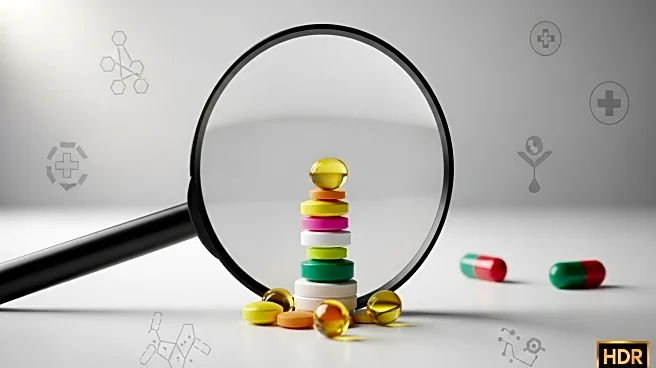What's Happening?
FDA Commissioner Marty Makary has announced a crackdown on direct-to-consumer (DTC) pharmaceutical advertising, citing it as a 'public health crisis.' The FDA plans to issue around 100 enforcement notices and thousands of advisory letters to pharmaceutical companies to ensure compliance with advertising regulations. This move follows a significant increase in DTC advertising spending since the 1990s, which Makary claims has distorted the patient-doctor relationship and increased demand for medications regardless of clinical appropriateness. The FDA aims to address misleading advertisements that emphasize benefits while downplaying risks.
Why It's Important?
The FDA's action is crucial in addressing the potential negative impact of misleading pharmaceutical advertisements on public health. By enforcing stricter regulations, the FDA seeks to protect consumers from deceptive marketing practices that could lead to unnecessary medication use and increased healthcare costs. This initiative could also restore trust in the healthcare system by ensuring that patients receive accurate information about treatment options. The crackdown may lead to changes in how pharmaceutical companies market their products, potentially influencing industry practices and advertising strategies.
What's Next?
The FDA will begin sending enforcement notices and advisory letters to pharmaceutical companies, urging them to comply with advertising regulations. The agency also plans to address promotions by drugmakers on social media and online platforms. The Pharmaceutical Research and Manufacturers Association (PhRMA) has stated its commitment to responsible advertising, indicating potential collaboration with the FDA to ensure compliance. The outcome of this crackdown could lead to more transparent and informative pharmaceutical advertising, benefiting consumers and the healthcare system.









